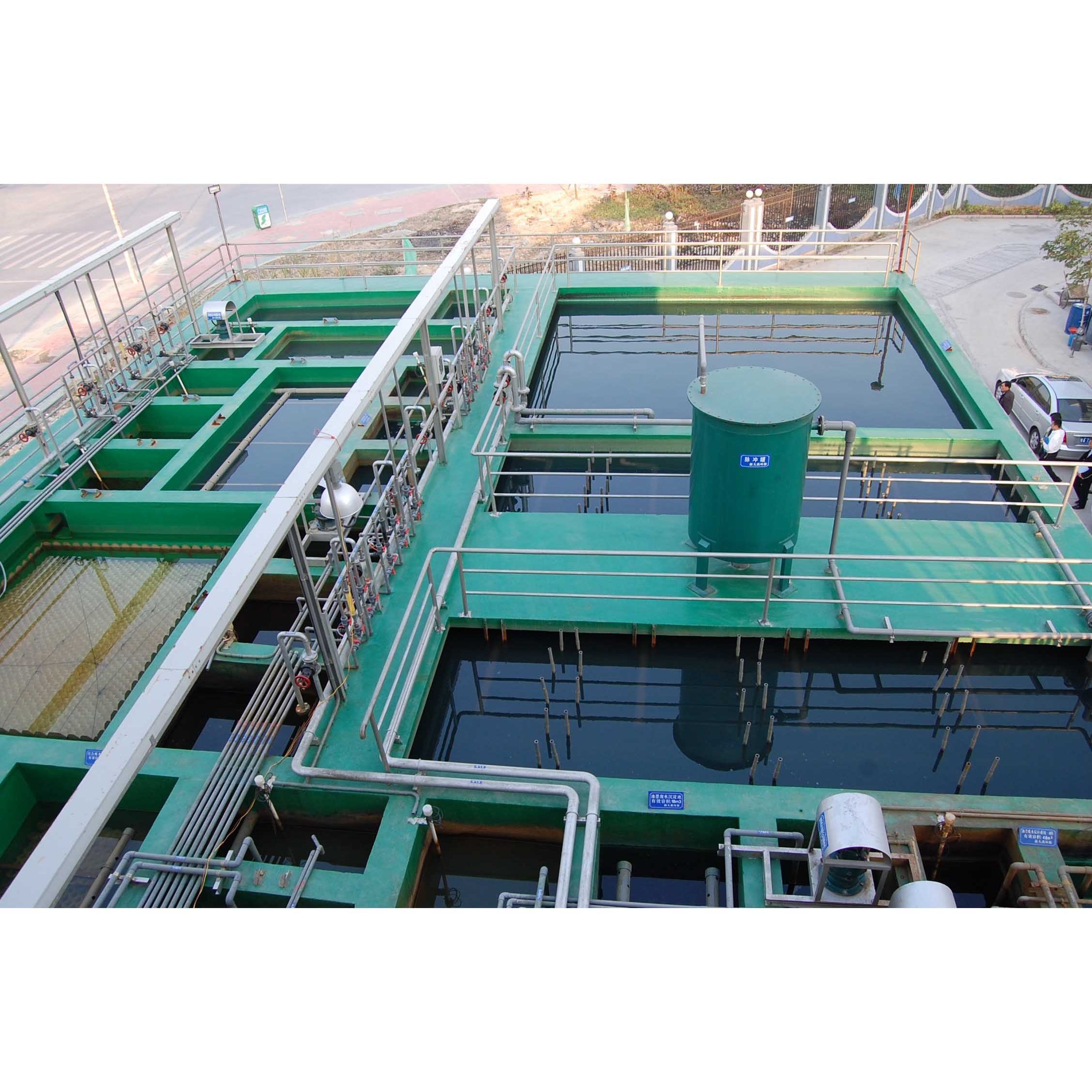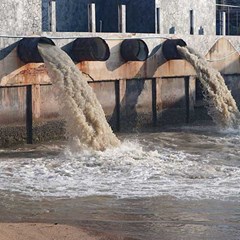The Role of Industrial Waste Water Therapy in Environmental Defense
The reliable therapy of commercial wastewater is progressively acknowledged as a foundation of environmental management, offering to reduce the detrimental impacts of toxins on marine communities. As sectors develop and expand, the demand for durable wastewater administration services becomes paramount to make certain conformity with ecological regulations and promote lasting methods. This necessitates a better examination of the therapy refines used and their effects for both environmental health and wellness and source healing. Understanding these characteristics increases critical questions about the equilibrium between commercial development and environmental honesty, triggering additional expedition of the paths ahead.
Importance of Drainage Therapy
The importance of wastewater therapy can not be overemphasized, as it plays a crucial duty in safeguarding public health and wellness and the atmosphere (Industrial Waste Water Treatment). Reliable wastewater treatment systems are vital for removing pollutants from commercial discharge, consequently stopping damaging materials from getting in natural water bodies. This procedure minimizes the risk of waterborne illness, which can occur from neglected wastewater, and safeguards community health and wellness
Furthermore, treated wastewater can be securely reused in various applications, such as watering and commercial procedures, advertising sustainable water monitoring techniques. By recycling water, markets can significantly reduce their freshwater intake, adding to source preservation.
In addition to wellness benefits, wastewater therapy is essential for protecting aquatic environments. Contaminants in neglected wastewater can bring about the deterioration of water top quality, harming aquatic life and interrupting eco-friendly balances. By dealing with wastewater prior to discharge, sectors assist preserve the honesty of regional communities and promote biodiversity.
In addition, governing compliance is a crucial facet of wastewater management. Following well established environmental standards not just avoids lawful consequences yet additionally improves a business's credibility as an accountable company person. Fundamentally, effective wastewater treatment is vital for securing public health, shielding the atmosphere, and promoting sustainable commercial methods.

Sources of Hazardous Waste Water
Industrial wastewater stems from a range of resources, each adding to the intricacy of treatment processes. Mainly, these resources include producing centers, refineries, and handling plants, which generate effluents as a byproduct of their operations. Industries such as fabrics, drugs, food and drink, and petrochemicals generate significant volumes of wastewater, commonly laden with pollutants including hefty steels, natural substances, and nutrients.
Along with manufacturing, agricultural activities contribute to industrial wastewater via drainage and effluent from livestock operations and crop handling. The meat and milk sectors, particularly, are known for releasing high degrees of biochemical oxygen demand (BOD) and microorganisms.
Furthermore, mining and mineral processing tasks generate wastewater having put on hold solids and dangerous chemicals. Power generation plants, specifically those making use of fossil fuels, additionally contribute wastewater with cooling down systems and chemical cleaning procedures.
Each of these sources presents distinct obstacles regarding the structure and volume of wastewater produced, necessitating tailored therapy services to minimize their ecological effect. Comprehending the varied beginnings of industrial wastewater is crucial for creating efficient administration techniques targeted at protecting water sources and promoting sustainable commercial methods.
Treatment Procedures and Technologies
Reliable treatment processes and modern technologies are crucial for taking care of commercial wastewater and reducing its ecological effect. Various approaches are utilized to remove impurities, adapt to various wastewater features, and follow regulatory requirements.
Physical treatment procedures, such as sedimentation and filtration, facilitate the elimination of suspended solids. These techniques are frequently made use of as preliminary actions to decrease the lots on subsequent therapy stages. Chemical therapy, including neutralization, coagulation, and flocculation, addresses dissolved toxins by changing their chemical residential or commercial properties, making them less complicated to separate from water.
Organic treatment innovations, such as triggered sludge systems and biofilters, use bacteria to degrade organic issue and nutrients. These methods are especially reliable for biodegradable waste streams, promoting the all-natural disintegration process. Advanced treatment modern technologies, such as membrane filtration and advanced oxidation procedures, deal boosted removal effectiveness for tough pollutants, including heavy metals and consistent natural substances.
Each of these therapy processes can be configured in various combinations to produce customized remedies that meet particular industrial demands. The selection of modern technology depends on aspects such as the sort of wastewater, desired therapy end results, and financial considerations, guaranteeing that markets can run sustainably while decreasing their ecological impact.
Ecological Benefits
Executing robust wastewater treatment processes not just makes certain conformity with regulatory standards however likewise generates substantial environmental benefits. Efficient therapy of commercial wastewater lowers the discharge of damaging contaminants into natural water bodies, thus securing marine ecological communities. By getting rid of toxic materials, heavy steels, and virus, these procedures assist preserve biodiversity and promote healthier ecosystems.
Additionally, dealt with wastewater can be repurposed for numerous applications, consisting of irrigation and commercial procedures, decreasing the need for freshwater resources. This reuse not only conserves water however likewise lowers the anxiety on local water supplies, which is specifically important in water-scarce areas.
Moreover, efficient wastewater therapy check my reference reduces the risk of dirt and groundwater contamination, making sure the integrity of neighborhood atmospheres. Industrial Waste Water Treatment. By protecting against the seepage of dangerous materials, markets add to the general health of surrounding neighborhoods and environments, enhancing public depend on and promoting lasting industrial methods
Regulatory Framework and Conformity
A comprehensive governing framework controls the treatment of industrial wastewater, making certain that industries abide by rigorous compliance criteria. Different nationwide and local guidelines, such as the Clean Water Act in the United States, stated restricts on the discharge of pollutants into water bodies. These guidelines are designed to safeguard water ecosystems and public wellness by mandating that sectors why not find out more implement proper therapy technologies.
Compliance with these regulations usually entails acquiring licenses, performing regular tracking, and reporting discharge degrees to regulative authorities. Failure to conform can lead to considerable charges, consisting of fines and operational restrictions, thus incentivizing markets to embrace ideal methods in wastewater administration.
Along with governmental guidelines, several sectors additionally stick to voluntary standards and accreditations, such as ISO 14001, which promote sustainable environmental management methods. Stakeholders are significantly supporting for boosted openness and responsibility in wastewater administration, pushing for more stringent enforcement and even more strenuous coverage demands.
Eventually, a robust governing structure not only serves to mitigate ecological dangers but also cultivates a society of sustainability within the commercial industry, encouraging continual enhancement in wastewater treatment procedures.
Verdict

The reliable therapy of industrial wastewater is significantly acknowledged as a cornerstone of ecological security, serving to minimize the harmful influences of toxins on water communities. Reliable wastewater treatment systems are important for getting rid of pollutants from commercial discharge, therefore protecting against damaging substances from going into natural water bodies.Industrial wastewater stems from a variety of resources, each adding to the complexity of therapy procedures. Efficient therapy of commercial wastewater lowers the discharge of damaging pollutants into all-natural water bodies, thus shielding aquatic ecosystems.In final thought, commercial wastewater treatment is necessary for protecting ecological honesty and promoting lasting water management.